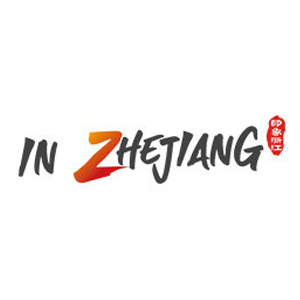Chinese Edition of Oddsockeaters Celebrates 70-Year Ties between China and Czech 袜子精灵与中捷友谊
2019-06-26 09:19:59 source: 《文化交流》:孙在
“有没有发现,你很多袜子少了一只?”
“是呀是呀,我抽屉里的好多袜子都只剩一只啦!”
“知道另一只袜子去哪里了吗?有一群袜子精灵住在我们家,他们最爱吃袜子,特别是棉线袜子和羊毛袜子,嗯,如果有点味道……那就更好了。不过他们只拿走一只袜子,给你留下另一只。”
“我丢的袜子就是棉线的!”
“你想不想找到袜子精灵?袜子精灵平时是看不见的,他们像变色龙一样‘隐身’了,世界上只有两个人见过他们……”
我用这样的一段对话来“引诱”家里的小男孩儿来读这套书。听到最后一句,他已经按捺不住要寻找袜子精灵的心情了。
这套“袜子精灵”有三本——《奇怪的袜子精灵》《袜子精灵回来了》《永远的袜子精灵》,它与《鼹鼠的故事》一样,是家喻户晓的捷克国宝级童书,其中文简体版刚刚由浙江文艺出版社推出。
4月28日,在浙江文艺出版社副总编辑柳明晔的办公室里,我看到了“袜子精灵”。就在一周前的4月21日,这套书刚在印刷厂加急制作完毕,第二天她就拎了一大箱去了北京。4月25日,在捷克驻华大使馆有一场中捷建交70周年庆祝活动,这些书到了现场嘉宾的手中。捷克总统泽曼、捷克文化部长很高兴地给三本书签名祝贺。

为了更好的品质,宁愿等一等
说起来,浙江文艺出版社与这套书的“结识”有些偶然。
在2017年的BIBF(北京国际图书博览会)上,在多部图书的版权洽谈结束之后,柳明晔和同事难得有了一点自己的时间,就在博览会现场四处逛逛。正好,“袜子精灵”一书的插画师加林娜·米克林诺娃正在做这本书的推介活动。柳明晔一下子就被“袜子精灵”的插画吸引住了。
对捷克文学,柳明晔情有独钟,她说捷克虽然面积不大,但它是个文学大国,出了卡夫卡这样的大家。“《鼹鼠的故事》影响了很多人,也让捷克的儿童文学赢得了人们的尊敬和喜爱,‘袜子精灵’和《鼹鼠的故事》齐名,我很看好这套书。”
2018年8月,电影《奇怪的袜子精灵》登录中国各大电影院线,这也从一个侧面说明浙江文艺出版社在图书引进方面的前瞻性。
在电影《奇怪的袜子精灵》中,精灵们生活在车水马龙的城市里,与人类和平共处,无忧无虑。直到有一天,一群野心膨胀的精灵试图打破“教父”定下的规矩,开始成双成对地偷袜子。善良的精灵和野心家们因立场不同展开一场激烈的较量。一位孤独的人类老教授发现了精灵的踪迹,试图要把精灵们抓起来进行研究,小精灵们面临着前所未有的挑战。
可以说,电影的故事基本忠实于原著,但是原著更为丰厚且具有深远的想象空间。
在人们的预想中,“袜子精灵”在前一年谈定版权事宜,一定会在2018年暑期出版,借助电影来一波营销热潮。但是它背后的出版人没有这样做。
“对于引进图书来说,我们面临的最大问题是寻找合适的译者。”柳明晔说,引进类的文学作品,其实很难得以完美的呈现,“因为它对译者在两种语言上的造诣都提出了很高的要求。即使你找到了合适的译者,他当时也未必有时间来从事你这套书的翻译。”
最后,浙江文艺出版社找到了翻译家徐伟珠,她曾以《严密监视的列车》入围第七届鲁迅文学奖文学翻译奖。徐伟珠与另外两位捷克语学者翟东钰、王炜涛,共同完成了三册书的翻译。
柳明晔说,这样的慢,实现了浙江文艺出版社对于出版的用心,为了更好的品质,他们很多时候不赶潮流,而是愿意等一等。

捷克的想象力,提供多元文化的滋养
4月25日的中捷建交70周年庆祝活动,特别有文艺气息——乐队、冷餐都有浓浓的捷克味道,而最特别是的,每一张高脚桌上都放了一本“袜子精灵”。活动现场,捷克文化部部长将中文版“袜子精灵”作为中捷建交70周年礼物送给了中国文化和旅游部部长雒树刚。
“捷克不仅重视和中国经济方面的往来,对文化交流也特别重视,我们这个书正好赶在这个时候出版,他们也很高兴。”柳明晔说,在捷克,“袜子精灵”很有名,他们也愿意把这本书介绍到中国。
站在中国文化的角度,柳明晔所在的浙江文艺出版社为什么愿意花大力气去引进并精心制作这套书?
单从图书来讲,柳明晔觉得自己被“袜子精灵”的想象力所折服。“它的开篇就是小孩子经常会丢掉一只袜子,它去哪里呢?袜子精灵偷走了!这套书充满了很奇妙的想象,特别可爱。”中外文化背景的差异,造成了想象力的差异,作为出版人,柳明晔说她非常愿意将这个极富想象力的故事介绍给中国儿童。

而站在更高角度上讲,她希望自己和其他出版人一起,能通过优质的引进图书,为孩子们提供多元文化的滋养。当然,对成年人也是如此——“在阅读中去扩展自己的眼界和审美能力,多方面的吸收,可以成就我们更为高雅的审美趣味。”
正是如此,柳明晔认为,图书引进应该有海纳百川的包容,这种包容,对于我们的文化构建有极为深远的意义。
落脚于儿童文学,柳明晔常跟社里的编辑说,要多引进和猫猫狗狗相关的儿童文学,“这是小朋友们喜欢的,它表现了孩子和自然之间天然的联系。”当然,柳明晔也有自己的选择标准:应该是像《夏洛的网》这样的图书,“它注重小动物和小朋友之间暖心的温情,让孩子在这种交往互动中,得以成长。”
助读
《奇怪的袜子精灵》《袜子精灵回来了》《永远的袜子精灵》
[捷克]帕维尔·施鲁特 著
[捷克]加林娜·米克林诺娃 绘
徐伟珠 翟东钰 王炜涛 译
浙江文艺出版社
Chinese Edition of Oddsockeaters Celebrates 70-Year Ties between China and Czech
In April 2019, Zhejiang Literature and Art Publishing House released the simplified Chinese translation of , a set of three books authored by Czech writer Pavel Šrut (1940-2018) and illustrated by Galina Miklínová. On April 21, the printer delivered a case of books just off the press machine to the office of the publishing house. The next day, the books were carried over to Beijing just in time to be present at a celebration at Czech Embassy to China marking the 70th anniversary of the founding of diplomatic relations between China and Czech. The copies were distributed to the VIPs present at the ceremony, including Czech President Milos Zeman and Minister of Culture Indrek Saar, who gladly autographed the set on the spot.
It was at the Beijing International Book Fair in 2017 that Liu Mingye, a vice chief of the Zhejiang Literature and Art Publishing House, and her colleagues spotted while strolling around pavilions of other countries. They ran into Galina Miklínová who was promoting the book. Liu and her colleagues were fascinated by the colorful illustrations.

Liu has a special penchant for the literary masterpieces from Czech. Though a small country, Czech is proud of Kafka, a unique literary giant in the world literature. She is also a huge fan of , an animated character in a series of Czech cartoon that has enjoyed enormous popularity in China, especially in the 1970s and the 1980s. She decided to buy the copyrights of the book and publish a simplified Chinese edition.
The publishing house did not rush even though Liu and her colleagues knew that was scheduled to be screened across the country in August 2018 and that would help the sales of the set of the books if they could be published then. But they didn’t wish to rush. First of all, they wanted to find a translator best suitable for the job. Eventually they decided to commission Xu Weizhu to do the translation. Xu is an experienced translator and winner of Lu Xun prize in translation in 2018. Xu Weizhu collaborated with Zhai Dongyu and Wang Weitao, two specialists of the Czech language. Such a no-rush work arrangement reflects the publisher’s pursuit of excellence. The publisher prefers quality to timelines.
“The biggest challenge to introducing foreign stories to Chinese readers is to find a suitable translator,” comments Liu Mingye. “It is very difficult to produce a Chinese translation of a foreign story. A translator must have a mastery of both the source and the target languages. Sometimes you find a perfect translator, but the translator runs a work schedule so tight that she can’t find time to do the translation for us.”
appeals greatly to Liu Mingye. “The difference between cultural backgrounds gives rise to a huge difference in imagination,” Liu notes. As a publisher, she was willing to introduce this story of wild imagination to Chinese children. In fact, she loves stories that feature lovely tiny creatures such as moles, cats, and dogs. “Children love small animals, and such a love reflects a natural tie between children and nature,” she emphasizes to her colleagues on many occasions. She says books from foreign countries create a cultural diversity that helps children grow. “Cultural diversity helps adults too,” she says. “Book reading broadens our vision and enriches our aesthetics.”
Liu attended the celebration at the Czech Embassy in Beijing. “The Republic of Czech not only gives top priority to the economic exchanges between the two countries, but also pays special attention to cultural exchanges. The timing of Chinese version of made everyone happy. All of us were happy on the occasion.” At the ceremony, the copies of the series were given as a gift to Luo Shugang, Chinese Minister of Culture. The copies were signed by his Czech counterpart Minister of Culture Indrek Saar.

read more




